
Even the most cautious drivers can find themselves involved in an accident on the road. In situations where there are no additional witnesses, determining who is at fault can be challenging.
Dash cam footage serves as a reliable method for resolving these disputes, clearly demonstrating which party was responsible.
For those still on the fence about the benefits of dash cams and pondering, “Should I buy a dash cam?”, our latest guide offers comprehensive insights.
We will delve into the functions of dash cams, weigh the advantages and disadvantages of using them, and discuss how they could influence your car insurance.
What are Dash Cams?
Introduction to Dash Cams
Dash cams are sophisticated in-car systems designed to record both video and audio of your journey as soon as you commence driving. The recording begins the moment you turn on the ignition, ensuring every part of your trip is captured.

Utility and Functionality
These devices prove incredibly useful in the unfortunate event of an accident, providing evidence to support your claim of innocence.
However, due to storage constraints, dash cams are programmed to overwrite older footage with new recordings, necessitating timely transfers of important files you wish to retain.
The features and capabilities of dash cams can greatly vary depending on the model you select. Some offer a parking mode, activating the camera if your vehicle is bumped while parked – a convenient solution for protecting against minor scrapes and collisions.
Advanced models may include GPS tracking, speed monitoring, and efficient power usage.
Types of Dash Cams
There are three primary categories of dash cams, each designed to cater to different needs:
Front View Dash Cams: These devices capture everything happening in front of your vehicle. They are generally the most affordable option and provide a straightforward view of the road ahead.
Front and Rear View Dash Cams: Offering a more comprehensive surveillance solution, these dash cams record both the scene in front of the car and the traffic behind, greatly enhancing your ability to document incidents, especially those involving rear-end collisions.
Interior and Exterior View Dash Cams: Ideal for professional drivers, such as taxi operators, these dash cams record both outside and inside the vehicle. They allow drivers to monitor the behaviour of passengers, adding an extra layer of security for both the driver and occupants.
Why Should I Buy a Dash Cam?
Growing Popularity
It’s no exaggeration to state that dash cams have seen a remarkable surge in popularity among drivers. A survey conducted by Aviva, involving 2,134 motorists, revealed that one in four drivers in the UK now employs a dash cam.
Furthermore, three-quarters of these users advocate for others to adopt dash cam use, a trend that’s only expected to rise.
Research from the AA in 2017 highlighted an increase in dash cam ownership from 1% to 15% over four years, suggesting a continuing upward trajectory.
Understanding the Appeal
If you’re still on the fence about the benefits of investing in a dash cam, let’s delve into some of the key advantages that make them an essential addition to your vehicle:
No More “He Said, She Said”
The Unpredictability of the Road
The road is an inherently unpredictable environment, and even the most cautious and skilled defensive drivers can find themselves involved in accidents or incidents.
When such situations arise, determining fault can become a complex issue, particularly when all parties involved assert their innocence. This ambiguity can lead to frustrating and often unfair outcomes.
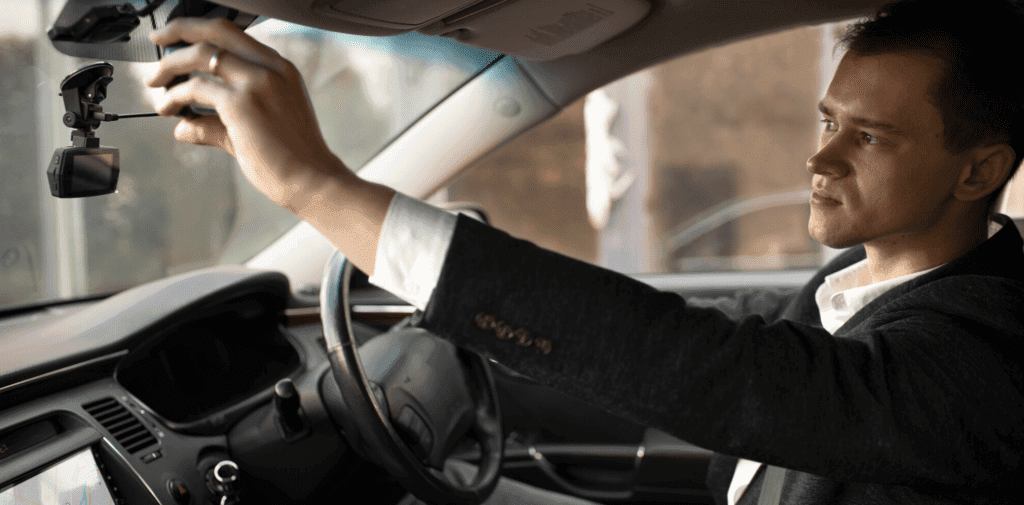
The Role of Dash Cams
Introducing a dash cam into your vehicle changes the game. These devices offer concrete evidence that can significantly support your version of events.
Rather than relying on conflicting accounts, a dash cam provides visual and audio documentation of what actually happened, making it a powerful tool in establishing the truth.
Legal Implications
Moreover, the footage captured by your dash cam can serve a critical role beyond personal vindication; it can be pivotal in legal proceedings.
This evidence can be used to prosecute dangerous drivers, ensuring that those who pose a risk to road safety are held accountable for their actions.
In essence, a dash cam not only protects you and your interests but also contributes to broader road safety efforts by helping to identify and penalise reckless driving behaviour.
It Encourages Better Driving
Self-Monitoring Effect
Having a dash cam installed in your vehicle can have a profound impact on your driving behaviour, similar to the effect experienced by drivers under black box (telematics) insurance policies.
The awareness that your actions are being recorded can naturally lead to more cautious and responsible driving.
The thought of being observed can deter you from engaging in risky behaviours, such as running a red light, akin to having a vigilant observer like your mother in the passenger seat, monitoring your every move.
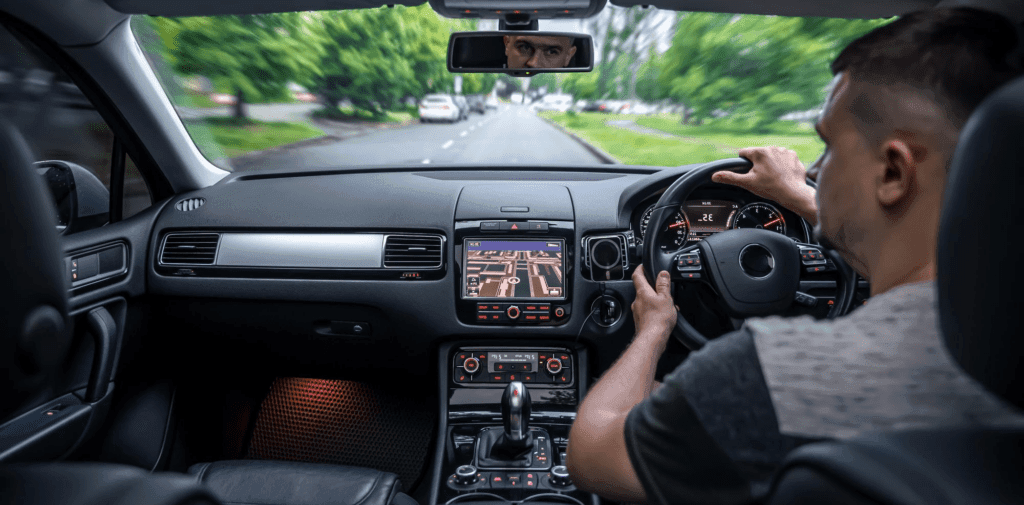
Promoting Safer Roads
Beyond self-improvement, dash cams also offer the potential to enhance overall road safety by extending their benefits to the wider community.
For instance, if you witness a driver exhibiting dangerous behaviour, such as swaying between lanes which might indicate impairment, your dash cam footage can serve as valuable evidence.
In the UK, the establishment of the National Dash Cam Safety Portal provides a straightforward mechanism for citizens to submit their dash cam footage directly to their local police force.
This not only facilitates the reporting process but also significantly aids in the enforcement of traffic laws and the identification of hazardous drivers.
Contribution to Community Safety
By submitting footage of dangerous driving, you actively contribute to the effort of keeping such drivers off the road.
This collective vigilance can lead to a safer driving environment for everyone, underscoring the dual benefits of dash cams in promoting both personal accountability and community safety.
Say Bye-Bye to Fraud
The Challenge of Fraudulent Claims
The reality of the roads is that not all car accidents are straightforward incidents. There exists a nefarious subset of drivers who intentionally orchestrate crashes or exaggerate their injuries to illicitly claim compensation from insurance companies.
These ‘crash for cash‘ schemes are not only unethical but also impose significant financial burdens on insurers, costing them millions each year.

Dash Cams: A Deterrent to Fraud
This is where the value of a dash cam becomes irrefutable. By providing irrefutable video evidence, a dash cam can clearly demonstrate instances where the other party has engaged in deceptive practices, such as signalling misleadingly with their headlights to suggest you should proceed, only to then deliberately cause a collision.
Protecting Yourself and Your Insurer
The presence of dash cam footage can decisively prove that the other driver intentionally initiated actions to cause the accident, thereby protecting you against fraudulent claims.
This not only safeguards your interests but also aids your insurer in identifying and combating fraud, ultimately contributing to a fairer and more transparent insurance process.
Monitor Your Car 24/7
Dangers Beyond Driving
The risks your vehicle faces aren’t confined to the times it’s on the move. Vehicles are vulnerable to theft and vandalism in various settings, including when parked in seemingly safe locations like outside your home.
The unfortunate reality is that these incidents can happen anywhere and at any time, making it essential to consider additional protective measures.
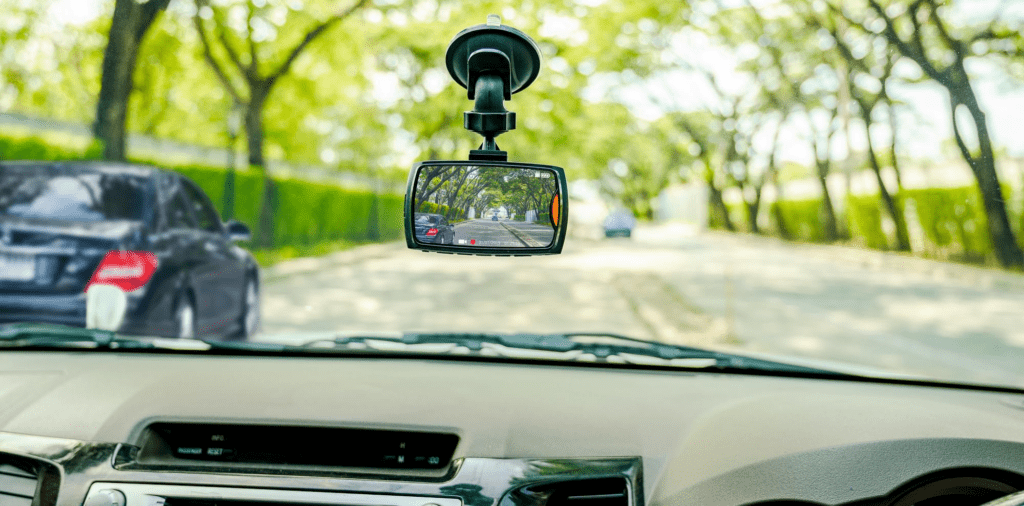
The Role of Dash Cams in Vehicle Security
A dash cam equipped with a standby mode offers a significant layer of security, providing peace of mind that any attempts to break into or damage your car will be recorded.
This capability not only helps in gathering evidence in the event of such incidents but also plays a crucial role in deterring potential offenders.
Knowing that their actions could be caught on camera may discourage thieves and vandals from targeting your vehicle.
Theft-Deterrent Benefits
In addition to capturing footage of incidents, the mere presence of a dash cam can act as a powerful theft deterrent.
Potential criminals are likely to think twice before attempting to interfere with a vehicle that could record their actions, reducing the likelihood of your car being tampered with.
This dual function of dash cams as both a monitoring tool and a deterrent adds a valuable layer of protection for your vehicle around the clock.
Great for Driving Lessons
Enhancing Learning Experiences
For many driving instructors, the inclusion of a dash cam in their instructional vehicles has become a standard practice.
These devices are invaluable during driving lessons, providing a dynamic way to capture and review the driving process.
Instructors can leverage the recorded footage to showcase example test routes or pinpoint specific situations that learners need to be aware of, enhancing the educational experience.
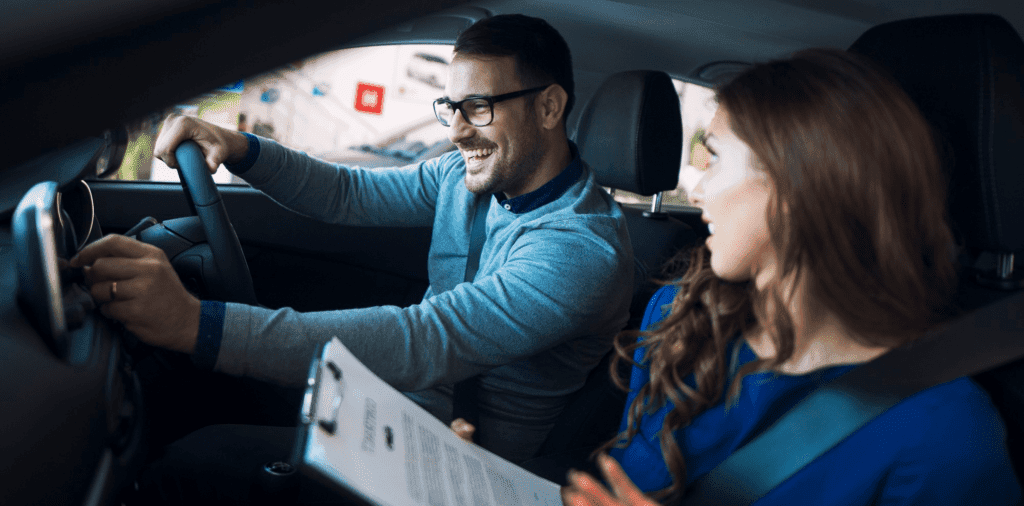
Utilising Dash Cam Footage
The utility of dash cams extends beyond mere recording; they can also be a tool for detailed analysis.
Instructors might use the footage to discuss and analyse driving behaviours, decision-making processes, and techniques with their students, offering a concrete visual reference that can enrich the learning process.
GPS Capabilities and Safety Benefits
Many modern dash cams are equipped with GPS functionality, which not only aids in navigation but also provides insights into preferred test routes used by examiners during driving tests.
It’s important to note, however, that the DVSA stipulates restrictions on the use of internal dash cams during the actual test.
Beyond instructional benefits, the GPS feature proves invaluable in emergency situations. Should a vehicle break down, the GPS data can significantly expedite the emergency services’ response, ensuring that help arrives promptly and accurately to the location.
Why Shouldn’t I Buy a Dash Cam?
Having outlined the key advantages of owning a dash cam, it’s now time to consider the other side of the coin.
Let’s explore the reasons why a dash cam might not be the right choice for everyone—because, as with most things, there are always two sides to every story!
Self-Incrimination
Evidence in Legal Proceedings
As previously discussed, dash cam footage plays a crucial role in legal contexts, particularly in establishing fault in car accidents or incidents.
This technology offers an objective perspective that can significantly influence the outcome of disputes and legal cases by providing clear evidence of the events as they unfolded.
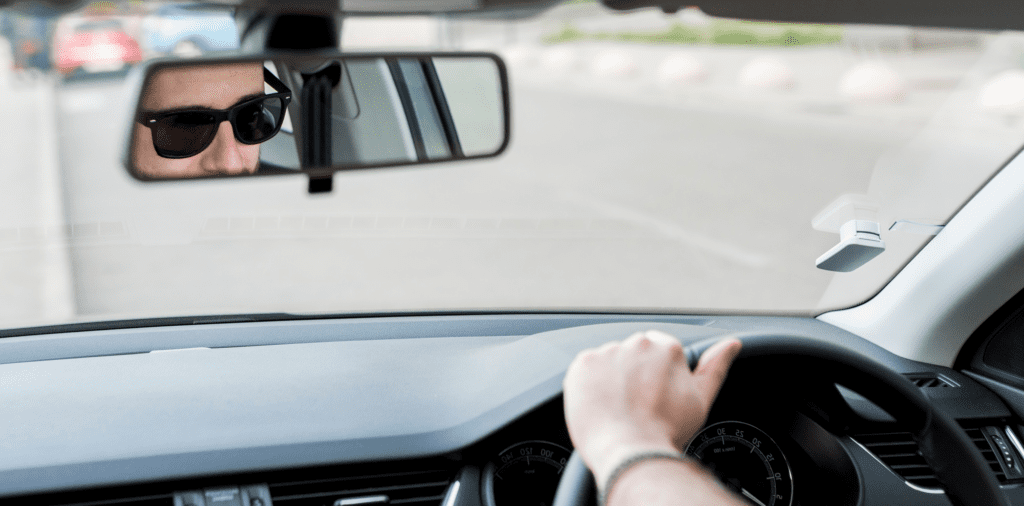
The Double-Edged Nature of Dash Cams
However, it’s important to recognise the dual nature of this technology. Just as dash cam footage can vindicate a driver by proving their innocence, it can also serve as evidence of wrongdoing.
If you are found to be at fault in an incident, the footage from your own dash cam could be used against you in a court of law.
Legal Obligations and Rights
The idea that one could simply choose not to share potentially incriminating footage from their dash cam is a misconception.
In many jurisdictions, law enforcement agencies have the authority to legally seize a dash cam and extract the footage if it’s deemed necessary for an investigation.
This underscores the importance of always driving responsibly and adhering to traffic laws, as dash cams record all actions, regardless of the driver’s intent.
Dash Cams: Legalities Around the World
Dash cams, while incredibly useful for drivers in many countries, face legal restrictions or outright bans in certain jurisdictions.
It’s essential to be aware of these legal nuances to avoid penalties, especially if you’re travelling abroad. Let’s explore the status of dash cam usage across various countries:
Countries with Restrictions or Bans
Country | Legal status |
Austria | Prohibited. Fines for first-time offenders can reach up to £22,000. |
Belgium | Restricted to Private Use. Permission required for submitting footage to third parties. |
France | Restricted to Private Use. Uploading footage to the internet is not allowed. |
Germany | Permitted with Restrictions. Must obscure faces and number plates if uploading footage to social media. |
Luxembourg | Ownership Allowed, Use Prohibited. It's best to leave your dash cam at home. |
Norway | Permitted. The main restriction is ensuring the dash cam does not obstruct the driver's view. |
Portugal | Prohibited. Owning or using a dash cam is not allowed. |
Switzerland | Legally Complex. Usage for entertainment or documenting purposes is restricted, and recorded individuals must be notified. |
United States | Varies by State. Check local state laws as regulations differ. |
UK | Permitted with Conditions. Must not obstruct view, and passengers must be informed if audio is recorded. |
When travelling with a dash cam or considering purchasing one for use in your country or abroad, it’s crucial to familiarise yourself with local laws and regulations.
The above table highlights how rules can vary significantly from one country to another, from complete bans to specific restrictions on usage and data sharing.
Always ensure your dash cam usage complies with local regulations to avoid fines or legal complications.
Dash Cams: Not a Fool proof Deterrent
Potential Limitations
While dash cams can offer a significant amount of reassurance regarding car theft or damage, they are not a guaranteed solution. There’s always the possibility that a thief could simply take the dash cam themselves if they’re sufficiently motivated.

Cost vs Benefit
Considering that the cost of some dash cam models can exceed £200, the investment might seem somewhat ineffective and expensive, particularly when weighed against the risk of it being stolen.
The High Cost of Quality Dash Cams
Price Considerations
When it comes to selecting a dash cam, be prepared that the cost could be quite substantial, especially for high-quality models. Opting for a premium dash cam can significantly lighten your wallet.
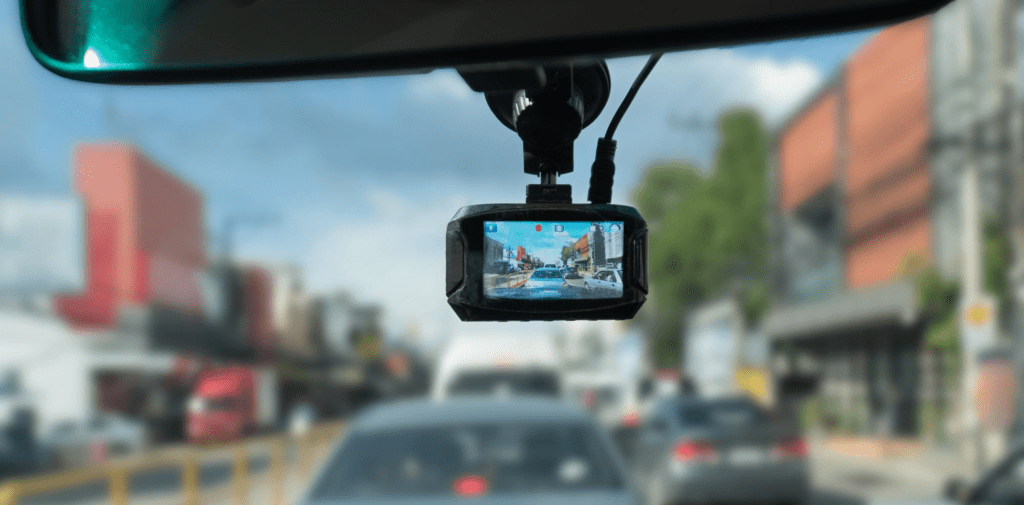
Budget Models: A Double-Edged Sword
While choosing a budget model might seem more economical, this decision could have repercussions. If the dash cam you select is only capable of capturing blurry footage, it may ultimately prove useless. Insurance companies and courts of law require clear evidence, and low-quality video won’t meet their standards.
The Complexities of Data Protection with Dash Cams
The Issue of Privacy
One of the primary concerns with dash cams in some countries is data protection. When you’re recording the streets, there’s a high chance you’re also capturing images of people without their permission. This situation becomes particularly problematic when social media is involved.
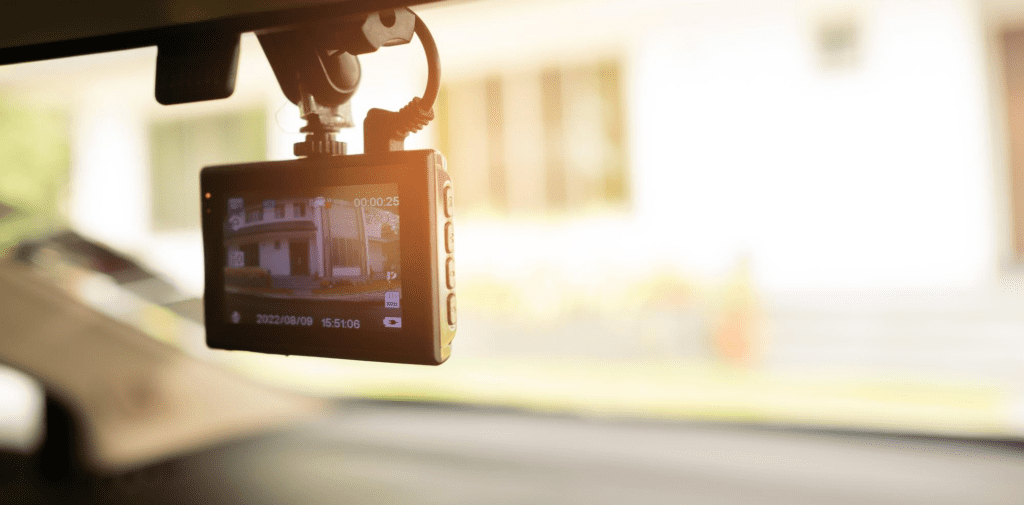
The temptation to share amusing incidents, like a cyclist colliding with a car, on social media is understandable.
However, doing so could violate data protection laws. Moreover, posting certain types of footage might negatively affect ongoing investigations or legal proceedings.
So, we’ve outlined the key advantages and disadvantages of owning a dash cam. Next, we’ll explore how using a dash cam could impact your insurance costs. Spoiler alert: it might lead to lower insurance premiums!
How Would It Impact My Car Insurance?
The Benefits of Dash Cams
Installing a dash cam in your vehicle can significantly influence your insurance in several positive ways.
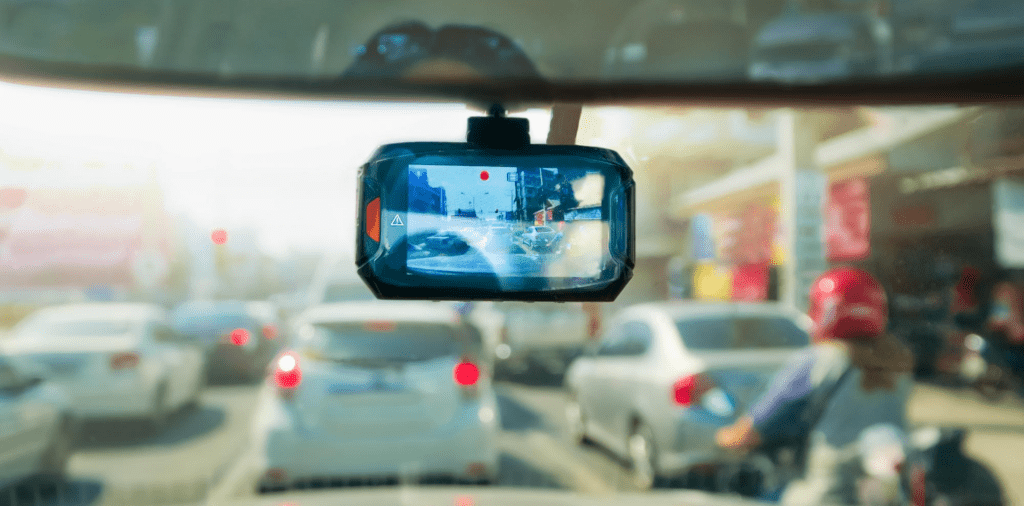
Proving Your Case
Firstly, in the event of an accident that wasn’t your fault, having dash cam footage can be crucial in proving your innocence.
This evidence can enable your insurance company to settle claims more swiftly and with minimal fuss, potentially allowing you to preserve your No Claims Discount (NCD).
Insurance Discounts
Moreover, some insurance companies offer discounts to drivers who use a dash cam. Although not widespread, the discounts can be substantial:
- Adrian Flux: up to 15% off
- AXA: 10% off
- Swift Cover: 12.5% off
To qualify for these discounts, you may need to install a specific model of dash cam that the insurance company approves. For example, Swift Cover extends its discount exclusively to those with a Nextbase dash cam.
Considerations Before Installation
While the potential for savings is tempting, it’s essential to approach dash cam installation with caution.
Some insurers may classify a dash cam as a vehicle modification, which could lead to an increase in your insurance premiums.
It’s advisable to conduct thorough research and consult with your insurance provider to understand the implications fully.
Opting for a dash cam could result in considerable savings, making it a worthwhile consideration for those seeking more affordable insurance options.
Frequently asked questions
Yes, within certain limits. Driving instructors are free to use dash cams that record the view in front of or behind the vehicle.
However, if the dash cam records audio or visual footage inside the car, the instructor must inform their learners and any other passengers about this.
Furthermore, driving examiners might request the removal of the dash cam during practical exams.
This is entirely up to you. If you’re satisfied with just a front view dash cam, there’s no necessity to invest in a rear view one.
However, if you prefer to be more cautious and have the budget for it, opting for both front and rear view dash cams could be a wise decision.
Yes, it can. In the event of an accident, the police may seize your dash cam to examine the footage, regardless of whether you’re at fault. You are not allowed to refuse the handover of your dash cam.
A black box is a device used by insurance companies to track your driving habits, such as the intensity of your braking or your tendency to speed.
Having a black box insurance policy might lower your insurance premiums. On the other hand, dash cams primarily record video and audio footage of the road in front of and behind your vehicle.
Yes, dash cams are legal in the UK. You’re permitted to own and use a dash cam. However, it’s crucial that your dash cam does not obstruct your view while driving. Failing to comply with this could result in a significant fine from the police.
The reason is straightforward. Insurance companies aim to reduce risk and decrease the probability of needing to pay out for a claim.
Currently, there’s limited evidence indicating that dash cams significantly lower the risk of accidents.
Consequently, many insurers don’t find sufficient justification to offer discounts to dash cam users.
Yes, it might. Being aware that your driving is being monitored can lead to more cautious behaviour on the road. Therefore, you could notice an improvement in your driving habits after fitting a dash cam in your vehicle.
Yes, you can use a Go Pro as a dash cam if you make the necessary adjustments. However, this option may not be the most cost-effective.
In reality, it could end up being more expensive than purchasing a good dash cam. Additionally, you’d need to remember to switch it on each time you enter your car.
If you’re prone to forgetting, there’s a risk you might not have footage if you’re involved in an accident on a day you forget to record.



